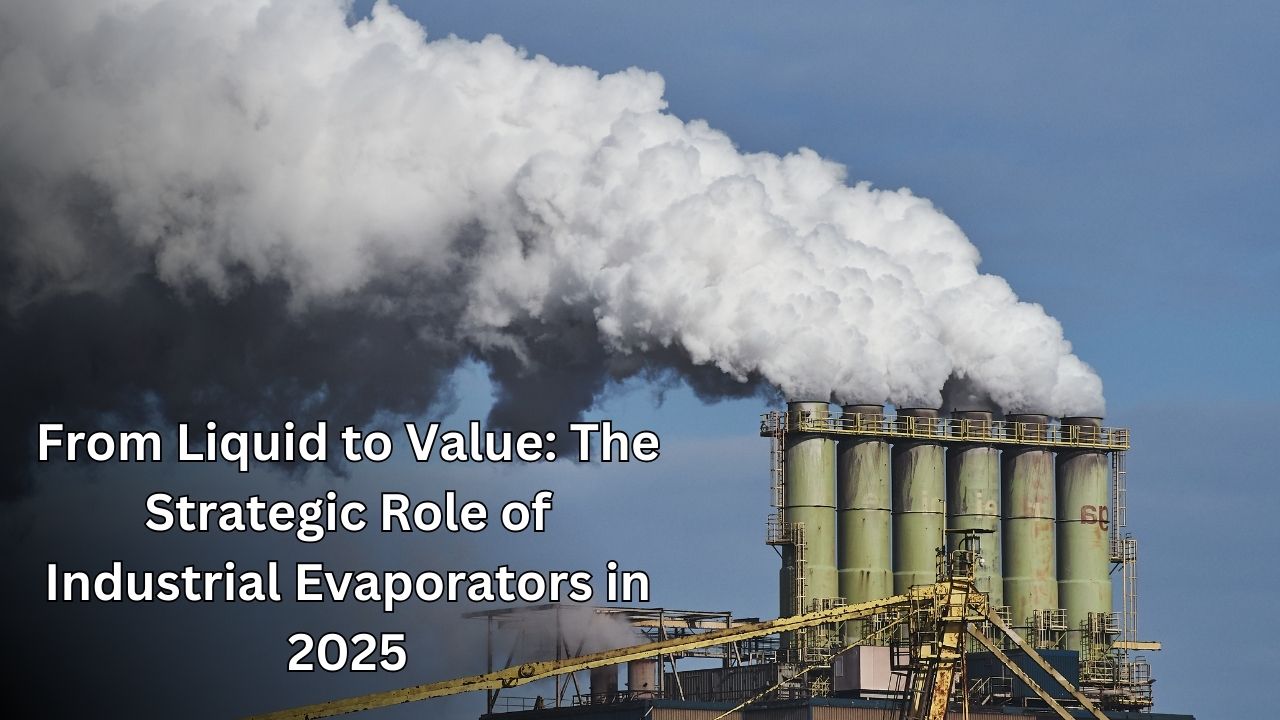
Bearing and Motor Maintenance Service for Axial Fans


In 2025, industrial evaporators are revolutionizing industries by transforming liquids into valuable products. These devices have become a cornerstone of modern production, delivering energy efficiency, process optimization, and environmental sustainability. From food and chemicals to pharmaceuticals and energy, evaporators unlock the potential of liquids, offering businesses a competitive edge. Below, we explore the transformative power of these devices in detail.

Industrial evaporators play a critical role in processes such as liquid evaporation, concentration, and purification. These devices reduce liquid content to minimize volume, enhance product durability, and recover valuable components. For instance, evaporating water in milk powder production or extracting minerals from wastewater in the chemical industry showcases the transformative power of evaporators.
Evaporators excel in energy efficiency. Multi-stage systems and mechanical vapor recompression (MVR) technologies minimize energy consumption, reducing operational costs. Additionally, eco-friendly designs lower carbon footprints. Stainless steel surfaces, automated cleaning systems, and precise control mechanisms ensure hygienic and reliable performance, which is vital for sensitive sectors like food and pharmaceuticals.
In 2025, evaporators do more than streamline production—they support sustainability goals. Systems integrated with renewable energy sources minimize environmental impact while delivering economic benefits, helping businesses align with global climate objectives.
The food and beverage industry is one of the primary domains where industrial evaporators are extensively used. In the production of milk powder, fruit juice concentrates, coffee extracts, sugar syrups, and alcoholic beverages, evaporators reduce liquid content, making products more compact and durable. In 2025, energy-efficient evaporators lower production costs while meeting food safety standards.
Stainless steel surfaces and automated cleaning systems ensure hygienic production processes. For example, in dairy products, evaporators preserve nutritional value while removing water. This offers a critical advantage in organic and natural food production. Modular designs provide flexibility for both small-scale producers and large facilities. Evaporators also reduce waste, supporting eco-friendly practices and minimizing food loss.
In the food industry, evaporators enhance product quality while reducing logistics costs. Concentrated products are easier to transport, saving energy. This provides a strategic advantage in global supply chains.
The chemical and petrochemical industry is a challenging field where evaporators deliver high performance. Essential for chemical separation, solvent recovery, and wastewater treatment, evaporators are indispensable. In 2025, technologies like MVR and thermal vapor recompression (TVR) reduce energy consumption, minimizing the environmental impact of evaporators.
Corrosion-resistant materials ensure durability against acidic and aggressive chemicals. Automation systems enhance process control, improving reliability. In the chemical industry, evaporators support strategic goals like waste minimization and valuable material recovery. For instance, separating chemical components from wastewater offers both economic and environmental benefits, helping businesses comply with regulations.
The high-efficiency designs of evaporators lower energy costs in chemical plants. Modular systems also offer adaptability to various production processes, enhancing operational flexibility.
The pharmaceutical industry is a field where industrial evaporators excel in precision and hygiene. Critical for the concentration, purification, and crystallization of active pharmaceutical ingredients (APIs), evaporators play a pivotal role. In 2025, evaporators designed to meet GMP (Good Manufacturing Practices) standards ensure reliability in sterile production environments.
Energy-saving technologies reduce costs and waste in pharmaceutical production. Precise temperature and pressure control preserves the chemical integrity of components. Compact designs deliver high efficiency in limited spaces, offering a strategic advantage for small-scale production of high-value drugs. Evaporators accelerate production processes while supporting innovation in the pharmaceutical sector.
Hygienic coatings and automated cleaning systems minimize contamination risks, ensuring compliance with stringent industry regulations.
Energy and waste management is a domain where evaporators play a key role in environmental sustainability. In wastewater treatment plants, evaporators facilitate the evaporation of contaminated water and the recovery of valuable materials. For example, evaporators are used to extract minerals like lithium from mining wastewater.
Evaporators integrated with renewable energy sources reduce energy consumption and carbon footprints. In 2025, solar-powered systems offer cost-effective wastewater treatment solutions in remote areas. This is a strategic step for businesses aiming to align with global climate goals, such as the Paris Agreement. Evaporators support circular economy principles in waste management.
In the energy sector, evaporators promote the efficient use of renewable resources, delivering both environmental and economic benefits.
In 2025, industrial evaporators are empowered by technological innovations. IoT-based control systems enable remote monitoring and optimization of evaporators. AI-driven algorithms make energy consumption and maintenance processes more efficient. Nanotechnology-based coatings enhance the resistance of evaporator surfaces to corrosion and fouling.
Modular designs offer rapid adaptability to diverse industrial needs. For instance, an evaporator used in the food industry can be easily reconfigured for chemical applications. This flexibility allows businesses to respond quickly to changing market conditions. Energy-efficient fans and optimized heat exchangers further boost evaporator performance.
Technological advancements make evaporators more compact and eco-friendly, helping businesses achieve sustainability goals.
In the future, industrial evaporators will open new horizons with more compact, energy-efficient, and eco-friendly models. Systems increasingly integrated with renewable energy sources will strengthen sustainability goals. Advances in AI and IoT technologies will further enhance evaporator performance, boosting business competitiveness and unlocking new applications.
The transformative power of evaporators will continue to accelerate industries’ journey from liquid to value. Beyond 2025, these devices will shape an era defined by innovation, optimizing processes and building a more efficient, sustainable world in sectors like food, chemicals, pharmaceuticals, and energy.

Fill out the form to discover the most suitable high-end products for your projects. Contact Us Now.